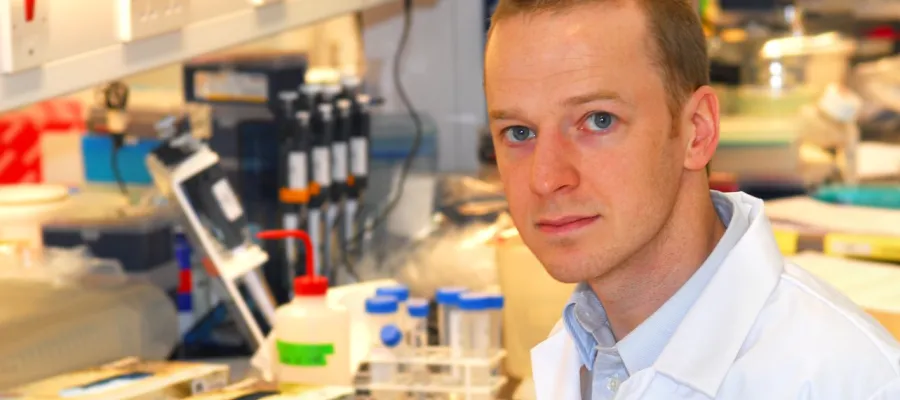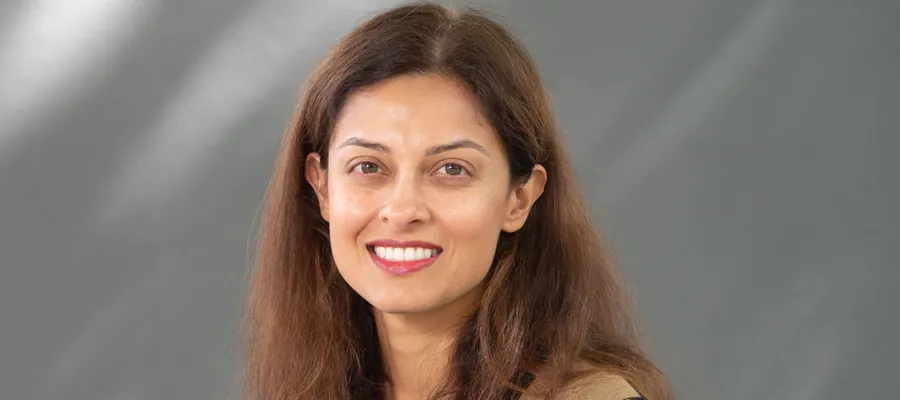Edinburgh’s world-leading expertise in areas including virology, public health and biomedicine is focused on mitigating the impact of Covid-19 and helping the quest for treatments.
Many of the University’s scientists and medical researchers are switching from studies unrelated to the coronavirus to research targeting the pandemic.
Clinical academic staff are increasing their support to NHS services, notably in intensive care medicine, general medicine and respiratory medicine.
The extent to which our researchers are contributing to the battle against Covid-19 is inspiring and I wish them success in their efforts. They provide a great illustration of why universities shouldn’t simply close down – we are part of the solution.
Professor Peter Mathieson
Principal and Vice-Chancellor of the University of Edinburgh
Improving treatments

Medical experts at Edinburgh have drawn up guidelines for clinicians on how to treat Covid-19. Analysis by Dr Kenneth Baillie recommends that steroids should not be used outside of clinical trials for treating the disease, unless clinically indicated for another reason.
Outbreaks of similar types of infection, such as SARS, have shown that steroids provide little benefit to patients and could do more harm than good.
Dr Baillie is also leading a project that seeks to increase understanding how Covid-19 affects the body. Using samples and data from 1300 Covid-19 patients in the UK, his team hope to provide real-time information that could help control the outbreak and improve treatments.
The project received nearly £5 million from the Government’s rapid response call to tackle the coronavirus pandemic.
Global resource
Experts in Biomedical Sciences have created a database that lists vital information about potential treatments for Covid-19 and possible drug targets – molecules in the body linked to the disease that could benefit from new therapies.
The resource, created by Professor Jamie Davies and colleagues, is available to scientists worldwide to assist the global effort against the coronavirus.
Conventional academic journals are of limited value in such fast moving situations, experts say. This online tool provides a more responsive resource for front line scientists.
Informing strategies
Dr Samantha Lycett at the University’s Roslin Institute is leading on probing similarities between Covid-19 and the SARS coronavirus outbreak of 2002-2003. In collaboration with colleagues, Dr Lycett is also investigating the likenesses between Covid-19 and related bat viruses.
Such comparisons are helping researchers to pinpoint genetic regions of the new virus that may be changing as it infects people. These insights could inform strategies to control its spread.
Teams at Roslin are also trying to trace when and how Covid-19 was first transmitted from an animal to a person. Knowing this will shed light on the factors that made its spread possible.
Applying expertise
Researchers in the University’s School of Biological Sciences have confirmed that the virus that causes Covid-19 – officially known as SARS coronavirus 2 – has evolved naturally.
Professor Andrew Rambaut was part of an international team that analysed genome sequence data and found no evidence that the virus had been made in a laboratory, or had been otherwise engineered.
I am proud of how members of the University of Edinburgh, across many disciplines and staff groups, are bring their skills and expertise to bear on this important global challenge. I am sure we will need to update you on a regular basis as we take on further challenges.
Professor Moira Whyte
Vice Principal and Head of the College of Medicine and Veterinary Medicine
Shaping policy
Researchers at the University’s Usher Institute and School of Biological Sciences – Dr Bram Van Bunnik, Mr Alex Morgan and Professor Mark Woolhouse – are conducting policy-relevant analyses of the possible effects and timing of social distancing measures. Professor Woolhouse is a member of the Scientific Pandemic Influenza Group on Modelling (SPI-M).
Other experts at the Usher are advising the World Health Organisation (WHO). Professor Devi Sridhar is supporting the WHO on policy and governance and Professor Harry Campbell is advising on global surveillance.

International impact
Professor Sridhar, Professor Woolhouse, Professor Linda Bauld and Dr Christine Tait-Burkard are among Edinburgh’s academic experts providing comment and advice in the global media. Through the media, they are helping people to better understand the global challenge, the science behind the virus and the government policies aimed at mitigating its spread.
Their insights appeared in outlets including The Sunday Times, the New York Times, The Guardian and BBC Newsround.
Related links
News story: Steroids could do more harm than good for coronavirus
News story: Research to probe how Covid-19 affects people
Global database of potential treatments for Covid-19
News story: Roslin scientists support work to tackle coronavirus

